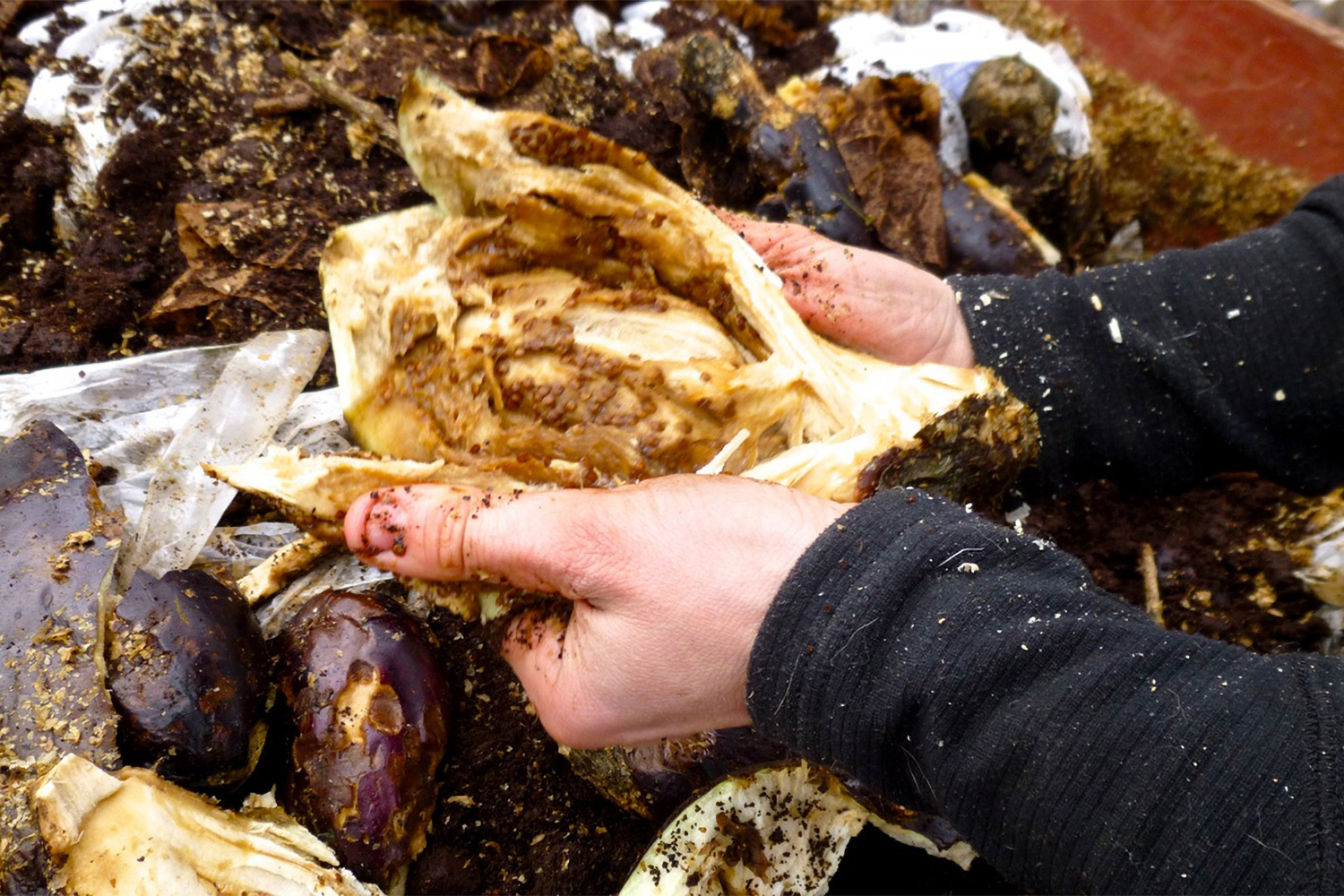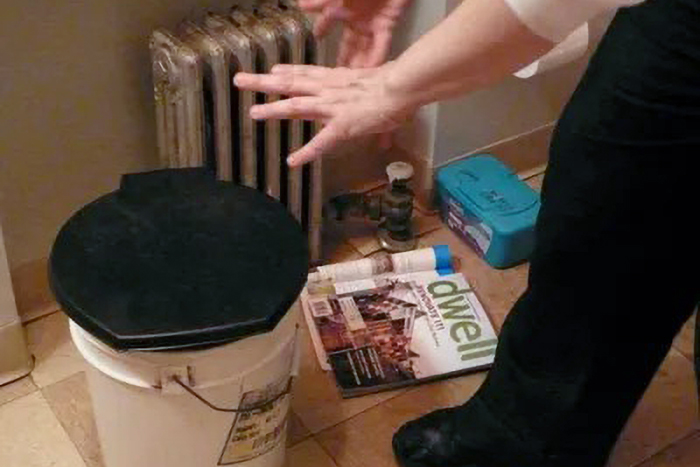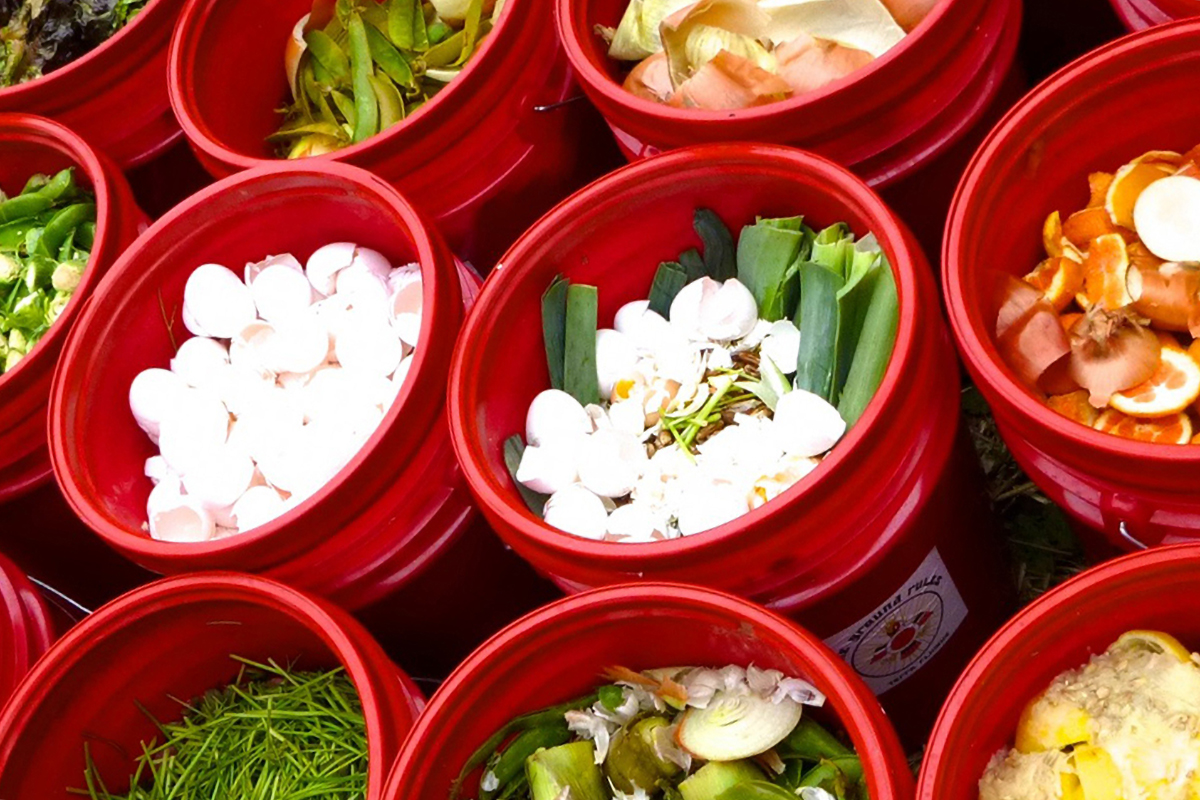Humble Pile

︎ Location Chicago, IL
︎ Timespan 2009 – 2010
︎ Client Research and Projects
An urban nutrient recovery project
︎ Timespan 2009 – 2010
︎ Client Research and Projects
An urban nutrient recovery project
Humble Pile is a project that invokes collective action on soil, food, and water issues. Consider that every gallon you flush takes a hundred gallons of water to reuse and come back through our pipes. Consider, also, that large doses of chemicals are used in the industrial sanitation process that purifies wastewater, which includes, of course, the water flushed down our toilets. By diverting human waste from the wastewater system, Humble Pile saves energy, prevents the use of chemicals for treatment of human waste, and—principally—creates healthy soil that is contaminant-free.
The Humble Pile project embraces our human capacity to be soil-makers. In a world where food is only as good as the soil that nourishes it, the creation of healthy soil is increasingly imperative. The Humble Pile takes urban composting practices to another level in a safe and community-oriented way. 36 individuals in the city of Chicago were invited to participate in the Humble Pile project, 22 of which signed on. Participants were given materials, including a simple bucket toilet, a snap on toilet-seat and ample sawdust, and they were individually educated on the process that would allow them to compost their own waste. Nance Klehm organized the project, provided all materials, education, and as-needed guidance on how to maintain the individual toilets in this project. She also orchestrated pick-up of the composting waste generated by participants over the course of three months, which usually meant personal-pick up and transport of compostable material via a bicycle she rode.
Over the course of these three months, 1500 gallons of composting waste was collected. At the three-month mark, Nance began the process of combining and balancing the composting waste provided by participants in order to optimize its effectiveness as soil. Within a year, the composting waste collected was fully transformed into nutrient-rich soil and it was redistributed to the original 22 participants in hand-sewn, screen-printed sacks.
Overall, the Humble Pile project proved to be a successful communal project that made effective use of organic waste in its local ecosystem while minimizing environmental impact of managing that waste. It might even be humbly said that a good time was had by all who participated.
The Humble Pile project embraces our human capacity to be soil-makers. In a world where food is only as good as the soil that nourishes it, the creation of healthy soil is increasingly imperative. The Humble Pile takes urban composting practices to another level in a safe and community-oriented way. 36 individuals in the city of Chicago were invited to participate in the Humble Pile project, 22 of which signed on. Participants were given materials, including a simple bucket toilet, a snap on toilet-seat and ample sawdust, and they were individually educated on the process that would allow them to compost their own waste. Nance Klehm organized the project, provided all materials, education, and as-needed guidance on how to maintain the individual toilets in this project. She also orchestrated pick-up of the composting waste generated by participants over the course of three months, which usually meant personal-pick up and transport of compostable material via a bicycle she rode.
Over the course of these three months, 1500 gallons of composting waste was collected. At the three-month mark, Nance began the process of combining and balancing the composting waste provided by participants in order to optimize its effectiveness as soil. Within a year, the composting waste collected was fully transformed into nutrient-rich soil and it was redistributed to the original 22 participants in hand-sewn, screen-printed sacks.
Overall, the Humble Pile project proved to be a successful communal project that made effective use of organic waste in its local ecosystem while minimizing environmental impact of managing that waste. It might even be humbly said that a good time was had by all who participated.
Though the Humble Pile project, as a communal endeavor, came to a close, Nance Klehm continues to compost human waste for the creation of soil in less structured contexts, and seeks to carry out organic waste composting projects on a larger scale. She has already demonstrated her ability to orchestrate a human waste composting project on a relatively large scale through her project Give Love Haiti, which involved establishing an infrastructure to turn the human waste of a 3000 person village into soil.
No prior experience with composting of any kind is necessary as the composting process, when overseen properly, is forgiving. Literally any group of individuals committed to the process could create viable soil and minimize the environmental impact of treating waste in industrial facilities. Communities such as neighborhood associations, shelters, schools, and jails could benefit both materially and socially from participating in a project inspired by Humble Pile. This project would have especially promising applications for the long-term benefit of a given community if a handful of individuals within that community are interested in becoming trained in safe and effective human-waste composting protocols.
No prior experience with composting of any kind is necessary as the composting process, when overseen properly, is forgiving. Literally any group of individuals committed to the process could create viable soil and minimize the environmental impact of treating waste in industrial facilities. Communities such as neighborhood associations, shelters, schools, and jails could benefit both materially and socially from participating in a project inspired by Humble Pile. This project would have especially promising applications for the long-term benefit of a given community if a handful of individuals within that community are interested in becoming trained in safe and effective human-waste composting protocols.


